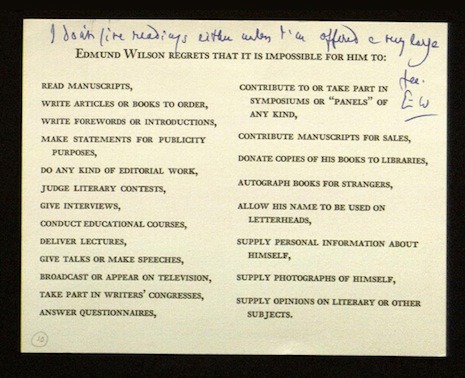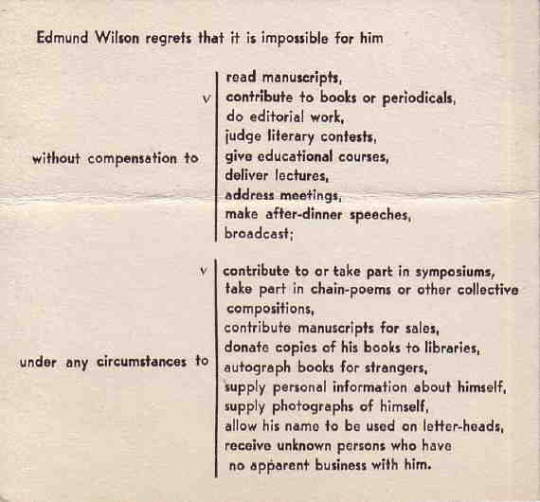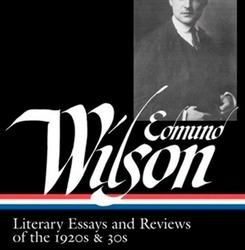#edmund wilson
Text

The Death of the Empire by Y. P. Karpenko
“Nicholas the Last
Charles I and Louis XVI were publicly executed after open trials. Nicholas II was secretly shot in a provincial basement along with his immediate family (and four members of his staff). It was a small room and it contained eleven victims and eleven killers. They were supposed to concentrate on one victim each, but the killers were soon firing at random. Those still alive when the gunsmoke cleared were disposed of by bayonet or further shots to the head. The bodies were transported by truck to a disused goldmine; sulfuric acid was poured on their faces before burial elsewhere—to make the Romanovs harder to identify.
In his "Introduction, 1971," as we have seen, Edmund Wilson was forced to give ground on the question of Lenin's amiability and benevolence (his words). It may seem sadistic to go on quoting him, but Wilson was distinguished and representative and by no means the worst offender (he is by now allowing that he "had no premonition that the Soviet Union was to become one of the most hideous tyrannies that the world had ever known, and Stalin the most cruel and unscrupulous of the merciless Russian tsars"). Toward the end of the piece, however, Wilson is still trying to account for Lenin's bad manners. Were they attributable, perhaps, to the poor breeding of Lenin's father? "Lenin himself, although his mother came from a somewhat superior stratum, and though Lenin distinguished himself as a scholar, had always rude and rather vulgar traits." Wilson regretfully adds:
. . . I have found that it was not true, as I had been led to suppose—this matter was hushed up in the Soviet Union—that Lenin knew nothing about and had not approved the execution of the royal family. Trotsky—and, one imagines, also Lenin—were both extremely cold-blooded about this. . . .
He then quotes, without comment, Trotsky's page-long rationalization of the murders. Indeed, Wilson writes as if regicide—and bad manners—were Lenin's only blemishes; and maybe he was "led to believe" that there were no others. It is a bizarre emphasis. The clouds of ignorance part, revealing the solar fire of archaic snobbery.
Trotsky had half a point when he said (elsewhere) that the Romanov children paid the price for the monarchical principle of succession. This would certainly apply to the Tsarevich, Alexis; but the four girls could expect no such inheritance—and neither could the doctor, the valet, the maid, the cook, or the dog. Wilson quotes Trotsky's Diary in Exile (1935):
The execution of the Tsar's family was needed not only to frighten, horrify and dishearten the enemy, but also in order to shake up our own ranks, to show them that there was no turning back, that ahead lay either complete victory or complete ruin. In the intellectual circles of the Party there probably were misgivings and shakings of heads. But the masses of workers and soldiers had not a minute's doubt. They would not have understood and would not have accepted any other decision. This Lenin sensed well.
But Trotsky is lying. The masses of workers and soldiers were not told of the "decision" to execute the entire family; for almost a decade they were told, instead, that the Tsarina and her children were in "a place of security." Nor was it proclaimed, as an additional morale-stiffener, that the Cheka had simultaneously murdered Grand Duchess Yelizaveta Feodorovna, Grand Duke Sergei Mikhailovich, Prince Ivan Konstantinovich, Prince Konstantin Konstantinovich, Prince Igor Konstantinovich and Count Vladimir Paley. This group was recreationally tortured, ante mortem. Grand Duke Sergei was dead on arrival, but the rest were thrown alive into the mine shaft where their bodies were eventually found.
The murder of the Romanovs seems to me fractionally less odious than, say, the murder of a Cossack family of equivalent size. The Tsar, at least, was guilty of real crimes (the encouragement of pogroms, for example). His end provoked, among the masses, little comment and no protest. The murder of the Tsarina and the five children was clearly seen by the Bolsheviks as a political deficit. It was therefore an irrational act, an expression of anger and hatred, though you can imagine how it was parlayed into an assertion of Bolshevik mercilessness, of "stopping at nothing." The ancillary killings sent no message to the Red Army or to the Party rump (except as a rumor). It sent a message to the Politburo, and the message said: we will have to win now, because we at last deserve anything they care to do to us if we fail. The Romanovs were murdered in mid-July 1918. By this time the regime had lost much of its pre-October support, and was responding with hysterical insecurity—that is, with violence. On September 3 and 5 came the decrees legitimizing the Red Terror.
There are several accounts, written or deposed, by the guards, executioners and inhumers of the Romanovs. One of the inhumers said that he could "die in peace because he had squeezed the Empress's ——." Imagining this, we arrive at a representative image of the gnarled hand of October. One executioner wrote (and he is quoted here for the dullness of his moral tone):
I know all about it. The shooting was all over the place. I know that . . . Medvedev took aim at Nicholas. He just shot at Nicholas . . . Anyway, it was just another sentence that had to be carried out, we looked on it as just another chore. . . . Of course, you start to think about its historical importance. . . . In fact, the whole thing was badly organized. Take Alexei, it took a lot of bullets before he died. He was a tough kid.
Yes, an imposing enemy: a thirteen-year-old hemophiliac. The Tsarevich outlived Nicholas II (resonantly and deservedly known also as Nicholas the Last). In those final seconds, then, the child was Alexander IV. Or Alexander the Last—but undeservedly.” - Martin Amis, ‘Koba the Dread: Laughter and the Twenty Million’ (2002) [p. 53 - 57]
#amis#martin amis#koba#stalin#lenin#trotsky#bolsheviks#communism#russia#tsar#nicholas#romanov#edmund wilson
8 notes
·
View notes
Text
No two persons ever read the same book.
— Edmund Wilson
16 notes
·
View notes
Photo
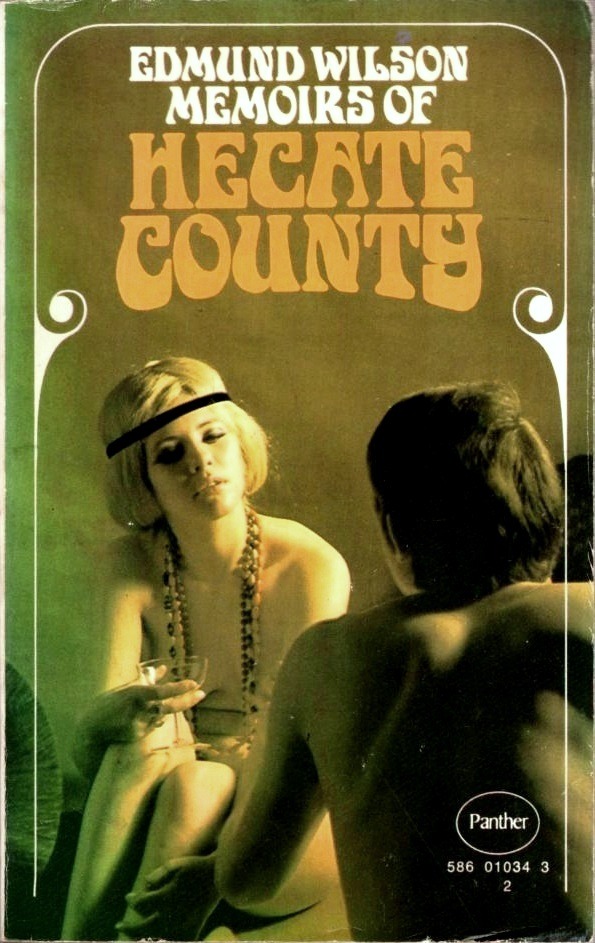
Edmund Wilson - Memoirs of Hecate County - Panther - 1969
111 notes
·
View notes
Text
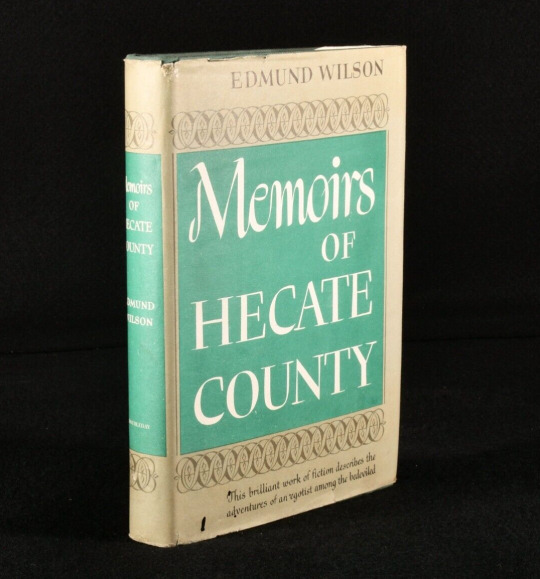
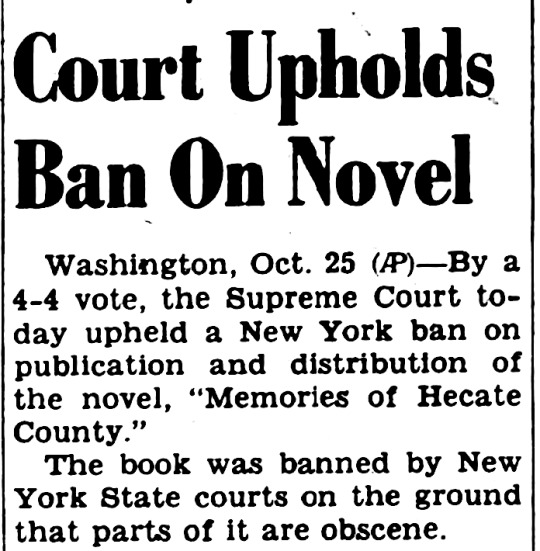
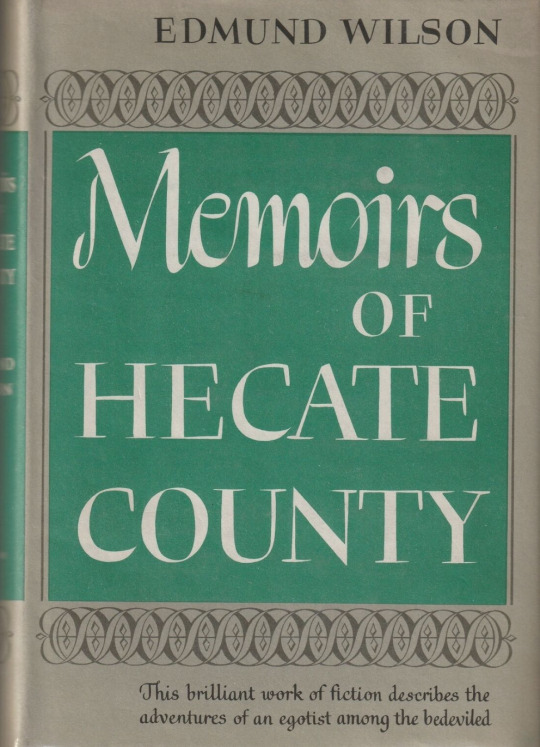
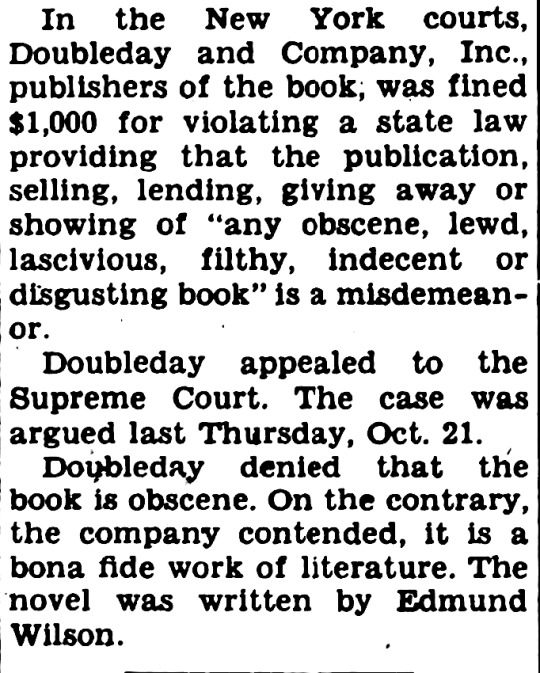
October 1948.
Doubleday was fined for publishing Edmund Wilson's Memoirs of Hecate County. They were found guilty of selling something that was "lewd, lascivious, filthy, indecent or disgusting."
16 notes
·
View notes
Text
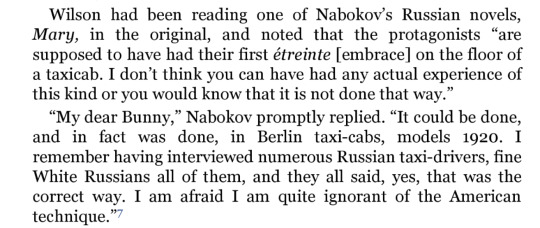
14 notes
·
View notes
Text
"No two persons ever read the same book."
Edmund Wilson, critic (8th May 1895-1972)
5 notes
·
View notes
Text
‘I do not want to be personal,’ wrote Nabokov to Edmund Wilson, before going on, very gently, to analyse his friend’s forgivable, even likeable, but in the end fatally woolly utopianism.
— Martin Amis, from Koba the Dread: Laughter and the Twenty Million
3 notes
·
View notes
Text
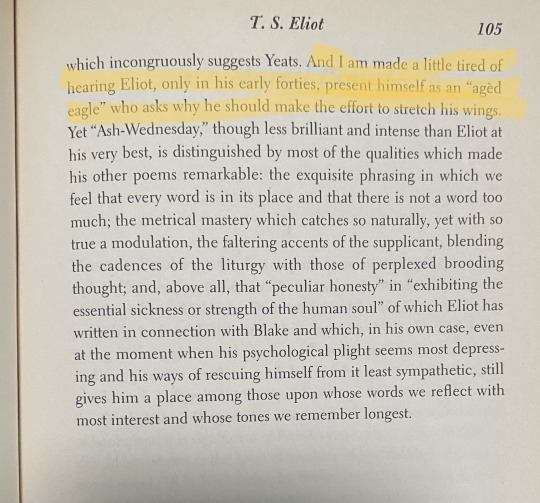
Edmund Wilson on TS Eliot, from Axel’s Castle
8 notes
·
View notes
Text
From Sea to Sea, di Rudyard Kipling. Citato in un saggio di Edmund Wilson presenta un istruttivo ritratto degli americani. Kipling è scrittore dell’imperialismo britannico non privo di grandezza rivelatrice, nel senso che il suo esplicito imperialismo non mitigandone la brutalità risulta molto utile alla sua comprensione. Kipling incontra nel New Hampshire un inglese scettico sulle qualità degli americani. Nella parte finale del dialoghetto Kipling dice: «“l’americano capirà le possibilità della sua terra, produrrà cose che lasceranno a bocca aperta l’esausto Occidente. Non vi è nulla che l’uomo conosca che egli non sarà, e la sua nazione farà muovere il mondo con un solo piede, come fa un uomo con l’asse di un’altalena!” “Ma questo,” fece l’inglese, “è peggio dei romani nel loro aspetto peggiore. Ci credete sul serio?” “Se mai credo seriamente a qualcosa, credo a tutto questo fermissimamente. Aspettate e vedrete. Sessanta milioni di uomini, per la maggior parte con impulsi inglesi, educati a credere fin dall’infanzia che niente è impossibile, non vanno di soppiatto attraverso i secoli come contadini russi. Lasceranno la loro impronta in qualche parte, non dimenticatelo”».
Nel 1899 troviamo la descrizione esatta dell’eccezionalismo americano; cioè di quell’assoluta pretesa, garantita attraverso l’uso machiavellico degli organismi di diritto internazionale, a governare il resto che non è loro trasformandolo in qualcosa di a loro simile. “Far muovere il mondo con un solo piede”… lo trovo stupendo e tragicamente efficace.
Il saggio di Edmund Wilson è compreso nella raccolta La ferita e l’arco e si intitola Il Kipling che nessuno ha letto.
1 note
·
View note
Text
Edmund Wilson: Same book
“No two persons ever read the same book.”
—-Edmund Wilson.
View On WordPress
0 notes
Text
Through the Looking Glass
Above, from left: When Teddy Roosevelt announced in 1912 that he would run for president against his former VP, William Howard Taft, Brown Brothers sent photographer Charles Duprez to Oyster Bay to take this famous photo; President Taft and his wife, Helen “Nellie” Taft, in 1909; famed New York Giants pitcher Christy Mathewson warms up before a game, circa 1912.…

View On WordPress
#Abe Birnbaum#Alan Dunn#Alice Frankforter#Barbara Shermund#Brown Brothers#Constantin Alajalov#Dorothy Draper#E.B. White#Edmund Wilson#Fanny Brice#Frank Buchman#Garrett Price#Hattie Carnegie#Hockey 1934#Howard Brubaker#Hudson Terraplane#Hugo Gellert#James Thurber#John Dillinger#Lewis Mumford#Lois Long#Mary Petty#Nancy Hardin#Otto Soglow#Oxford Group#Peter Arno#Rea Irvin#Richard Decker#Robert Day#Whoops Sisters
1 note
·
View note
Text
'Ah, Have You Seen Cy's Picasso?'
we already know now, but the way Edmund Wilson wrote a 1994 Vanity Fair profile of Cy Twombly to cast uncertainty, if not exactly doubt, on whether the Picasso Twombly copied for his partner Nicola del Roscio in 1988 was the same Picasso copy he called the first painting he ever made—or recalled making, to be at once both more precise and more vague—while hinting at the actuality of their relationship, but keeping Twombly and del Roscio—and Johns and Rauschenberg, for that matter—tastefully in the closet, is quite a period piece.
#cy twombly#edmund wilson#graydon carter would argue namedropping gore vidal was just how people came out in the '90s#cy twombly's picasso
1 note
·
View note
Text
POLÍMATAS. UN FENOMENO EN EXTINCIÓN
El historiador cultural Peter Burke estudia los casos de 500 intelectuales polifacéticos
Francisco R. Pastoriza
“El zorro sabe muchas cosas pero el erizo sabe una cosa grande”. Isaiah Berlin
Cuando se habla de los personajes que a lo largo de la Historia dominaban simultáneamente varias disciplinas, a todos nos viene a la mente una imagen, la de Leonardo da Vinci, y una época, el…
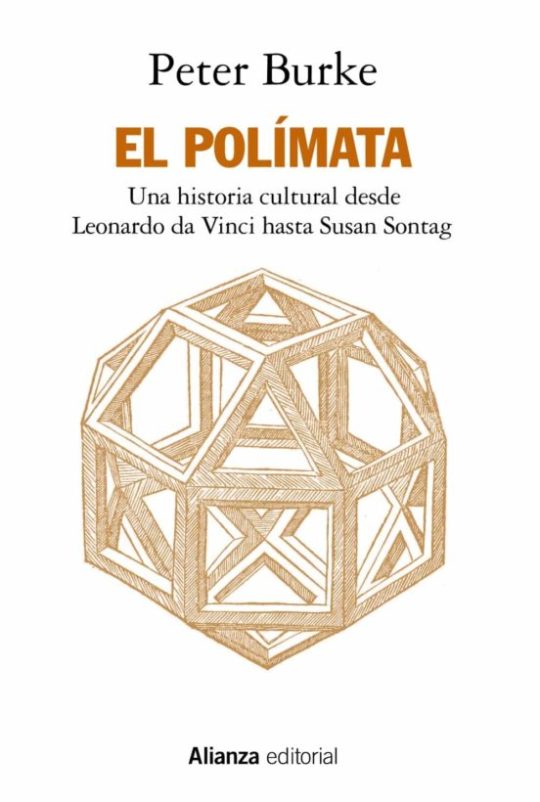
View On WordPress
#Alberto Magno#Aristóteles#Boecio#Cassandra Fedele#Cicerón#Descartes#Diderot#Edmund Wilson#Francis Bacon#Galileo#George Eliot#George Steiner#Isidoro de Sevilla#Jovellanos#Jurgen Habermas#Kepler#Newton#Peter Burke. Leonardo Da Vinci#Peter Soterdijk#Pico della Mirandola#Pitágoras#Plinio el Viejo#Ramón Llull#Slavo Zizek#Sor Juana Inés de la Cruz#Susan Sontag
1 note
·
View note
Text
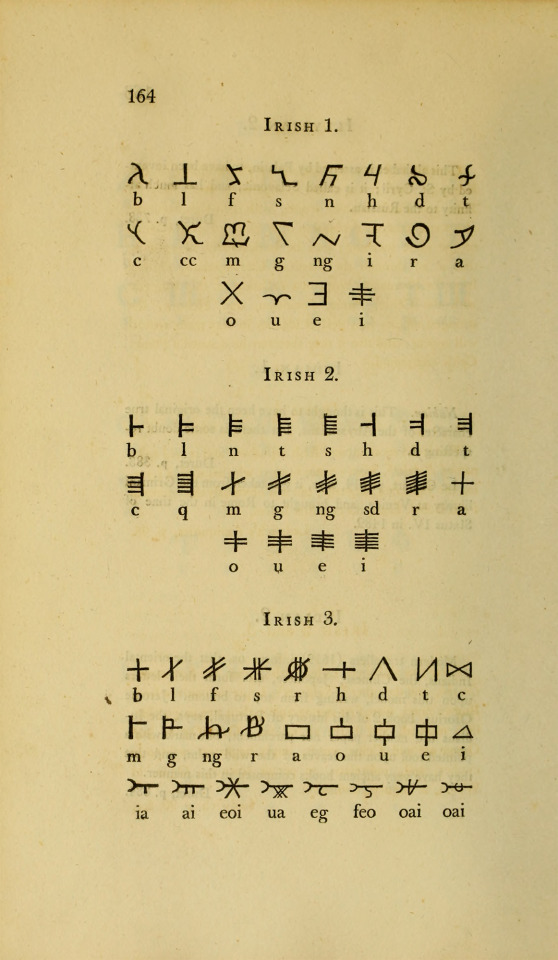
Edmund Fry, Pantographia; containing accurate copies of all the known alphabets in the world…, Cooper and Wilson, London, 1799, pp. 164-169


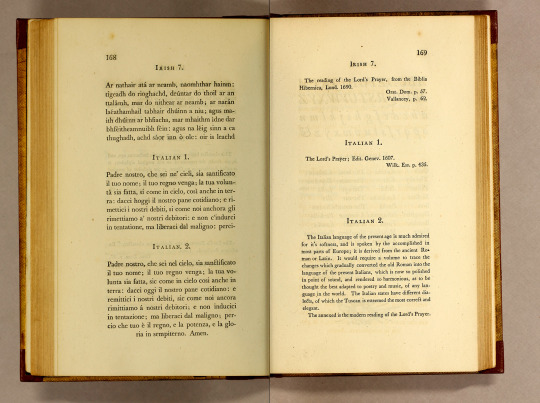
Full Title: Pantographia; containing accurate copies of all the known alphabets in the world; together with an English explanation of the peculiar force or power of each letter: to which are added, specimens of all well-authenticated oral languages; forming a comprehensive digest of phonology
#graphic design#typography#alphabet#specimen#visual writing#linguistics#anthropology#book#edmund fry#cooper and wilson#1790s
287 notes
·
View notes
